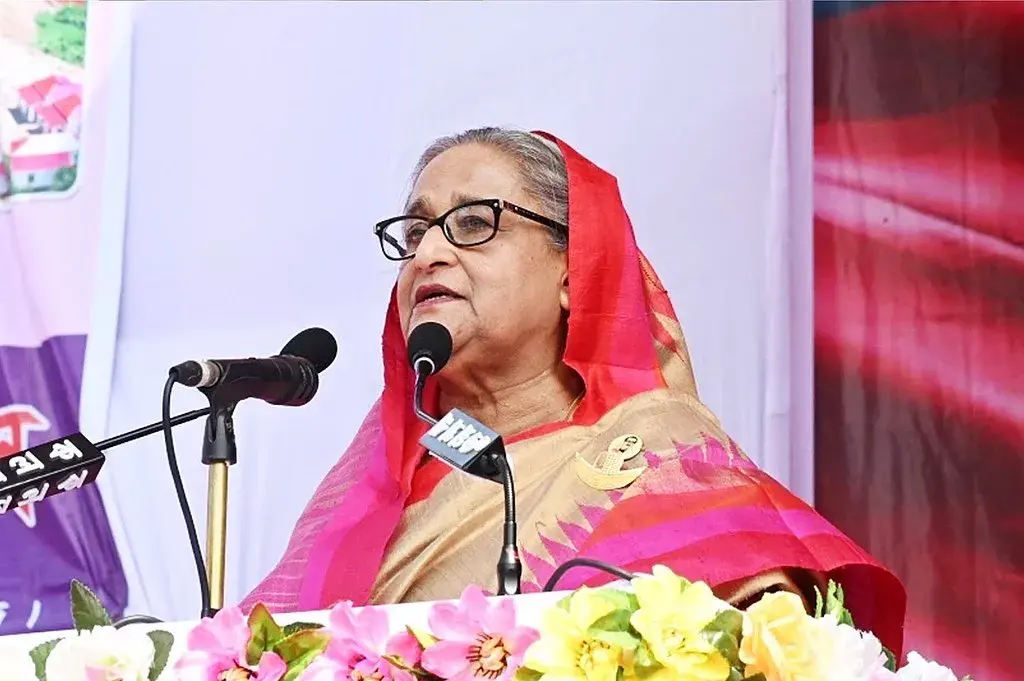In a polarizing electoral landscape marked by boycotts and allegations, Bangladesh’s Prime Minister Sheikh Hasina has clinched her fourth consecutive term, sparking debate and concerns over the legitimacy of the process.

Sheikh Hasina, Bangladesh’s Prime Minister, has secured a fourth consecutive term in what has been a disputed election. The ruling Awami League and its allies garnered a significant victory, claiming at least 152 of the 300 parliamentary seats contested.
With the main opposition, the Bangladesh Nationalist Party (BNP), boycotting the election, the remaining seats are anticipated to be won by Hasina’s party and its allies.
The BNP termed the election a sham and raised concerns about its legitimacy. Preceding the election, there were widespread arrests of BNP leaders and supporters. Official reports suggested a voter turnout of around 40%, although critics contest these figures, alleging potential inflation.
Hasina’s tenure marks her fifth term since her initial election in 1996, with her most recent term extending from 2009 until the present. Throughout the election, she expressed commitment to upholding democracy in the country.
Human Rights Watch (HRW) estimated the arrest of approximately 10,000 activists after a violent opposition rally in October, attributing these actions to the government’s suppression of political opponents aligned with the ruling Awami League. However, the Awami League has refuted these allegations.
Concerns have arisen regarding the potential implications of the Awami League’s continued dominance, with fears of a de facto one-party rule. Opposition parties and civil society groups remain skeptical about the government’s legitimacy, raising questions about its governance.
The BNP’s boycott stemmed from the Awami League’s dismissal of their request for an independent caretaker government overseeing the polls. Tarique Rahman, acting chairman of the BNP, based in London since 2008, affirmed the party’s commitment to a non-violent movement while denying accusations of BNP involvement in pre-election arson attacks. Khaleda Zia, Hasina’s political rival and former Prime Minister, is presently under house arrest due to corruption charges.
In 2018, Rahman was convicted in absentia for orchestrating a grenade attack on a campaign rally for Hasina in 2004, an incident that caused casualties. He refuted all allegations against him, labeling them as politically motivated vengeance.
Despite the controversy, supporters of Hasina assert that her leadership has brought much-needed stability to Bangladesh’s political landscape. They credit her with maintaining the democratic process and fostering confidence among the country’s populace.
Under Hasina’s leadership, Bangladesh has experienced remarkable economic growth, emerging as one of the fastest-growing economies in the region.
The nation’s per capita income has tripled in the last decade, and significant strides have been made in poverty reduction, with more than 25 million people lifted out of poverty in the last 20 years. Bangladesh also stands as the world’s second-largest garment producer after China.
However, the economy encountered challenges in mid-2022 due to the pandemic and global economic slowdown, leading to rising inflation and difficulty managing an IMF loan.
International pressure has mounted, with Washington imposing visa restrictions on Bangladeshi officials allegedly undermining the country’s democratic process. Concerns over human rights abuses and suppression of dissent have been expressed by the UN and other international bodies.
Yet, Hasina is aware of the support she enjoys from India, which could counterbalance potential major sanctions from the West. Furthermore, the impact of withdrawing concessions to Bangladesh’s garment industry—employing millions, predominantly women—on the global economy is a consideration for developed nations.
Having first assumed office in 1996, Hasina’s extended tenure raises questions about her succession and the country’s future leadership. Despite a clear election outcome, uncertainties persist about Bangladesh’s future trajectory.







